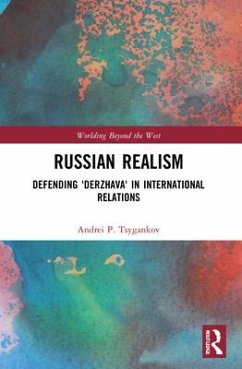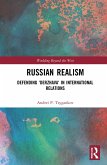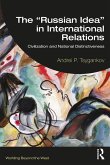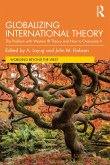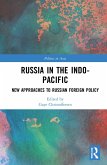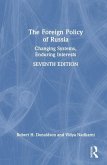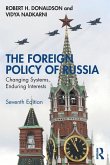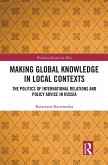Russian Realism analyzes Russian contemporary geopolitical thinking, or realism, and explores the notion of Derzhava as the foundation of Russian realism.
The author defines Russian realists as all those favoring actions by the Russian state in defense of its interests, including protection of national sovereignty, security, power, and prestige on the international scene. What makes Russian realism distinct is its "vision of Russianness" formed by the country's historical, cultural/religious experience, and its semi-peripheral position in the international system. The vision stresses the importance of survival, preservation of strong state, and protection of national interests from external infringement.
Mainstream literature, especially in the West, tends to ignore Russian theoretical debates and narratives; this book remedies this by providing significant insights into Russian realist thinking. It explores the historical unfolding of the longstanding national debates about Russia's role in Europe/the West and how realists have reframed these debates in response to multiple international and domestic developments. The book also identifies distinct groups and debates within the broad school of Russian realism.
This book will be of interest to students and scholars of Russian foreign policy, IR theory, diplomatic studies, political science, and European history. It will also appeal to a broader general audience of those interested in Russia and international politics.
The author defines Russian realists as all those favoring actions by the Russian state in defense of its interests, including protection of national sovereignty, security, power, and prestige on the international scene. What makes Russian realism distinct is its "vision of Russianness" formed by the country's historical, cultural/religious experience, and its semi-peripheral position in the international system. The vision stresses the importance of survival, preservation of strong state, and protection of national interests from external infringement.
Mainstream literature, especially in the West, tends to ignore Russian theoretical debates and narratives; this book remedies this by providing significant insights into Russian realist thinking. It explores the historical unfolding of the longstanding national debates about Russia's role in Europe/the West and how realists have reframed these debates in response to multiple international and domestic developments. The book also identifies distinct groups and debates within the broad school of Russian realism.
This book will be of interest to students and scholars of Russian foreign policy, IR theory, diplomatic studies, political science, and European history. It will also appeal to a broader general audience of those interested in Russia and international politics.
"Given the growing interest in non-western IR contributions, and the current challenges to western hegemony, Andrei Tsygankov's Russian realism is a welcome addition to Routledge's series 'Worlding beyond the West'."
John Berryman, Birkbeck, University of London, UK, writing in International Affairs, 99.2 (2023)
"Tsygankov's book focuses on Russian geopolitical thinking and its peripheral attention to the wider context of Russian domestic and foreign policy, making this book required reading for anyone studying Russian foreign policy."
Sanja Tepavcevic, Institute of Advanced Studies Koszeg, Hungary, writing in EuropeNow (2023)
John Berryman, Birkbeck, University of London, UK, writing in International Affairs, 99.2 (2023)
"Tsygankov's book focuses on Russian geopolitical thinking and its peripheral attention to the wider context of Russian domestic and foreign policy, making this book required reading for anyone studying Russian foreign policy."
Sanja Tepavcevic, Institute of Advanced Studies Koszeg, Hungary, writing in EuropeNow (2023)

